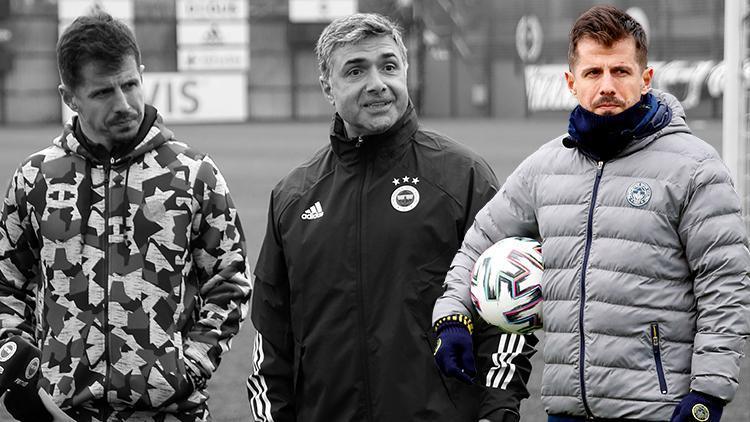Immediately after the death of Petr Kellner in the wreckage of a crashed helicopter last weekend a carousel of reflections and testimonies began, as was the “richest Czech”, what was his influence, what remained after him in the public sphere, and how his business empire would continue to operate. Richard Benýšek, vice-chairman of the Olomouc ODS and at the same time a man whom Kellner hired for 25 years for unpleasant work such as debt collection, clarified the meaning of these debates about the dead owner of PPF. “After the initial shock that someone you respect and who strongly influenced you left, the feeling came that this created a great power vacuum,” Benýšek answered a question from Hospodářské noviny, what his thoughts were immediately after the report of the tragedy, adding: “Petr Kellner was on the scales in a number of things that are happening in this country, or, on the contrary, did not happen. Someone will want to occupy that free space. But PPF perceives it, and I think it will make sure that it doesn’t happen. ”Benýšek’s words are clear: for the future, it is necessary to know how Kellner’s” tongue “was born and how it worked.
The administrator is the owner
“He was something like Karel Gott, who stood out in Czech (show) business,” wrote Ivo Lukačovič, owner of Seznam.cz, last week in memory of Kellner. He summed up the impression of a number of enterprising people, for whom Kellner is an example of how far it is to go from the Czech Republic.
The example fits – Gott grew up to a stellar singing position from an apprentice and electrician in ČKD, economics engineer After 1989, Kellner began his journey to billions by importing copiers. A meeting at the Prince de Ligne Hotel in Teplice in 1991 was important for the transformation from a dealer to something more. The hotel is still standing here on the square, recently famous for its illegal papal party in the middle of a covid lockdown. Kellner was 27 years old and went to Teplice to visit the director of the local glassworks, Štěpán Popovič. Coupon privatization was soon to begin, and Kellner was one of the few to understand the opportunity. His then partner Milan Vinkler came from Teplice, and the glassworks where he worked made a choice when looking for start-up capital.
“At that time, few people knew what an investment fund was, and Kellner already had it perfectly balanced in his head,” Popovič recalled meeting the now deceased 17 years ago in Respekt. Coupon privatization – a maneuver that allows citizens to receive a symbolic thousand crowns allotment of coupons, exchangeable free of charge for shares of thousands of privatized companies – has meant the largest transfers of assets in history since post-war nationalization. Only from the state to the citizens. The difference between Kellner and his understanding of this chance before the others can only be speculated. Vinkler, who later ended up in prison due to financial machinations and broke up with Kellner in a bad way, explained the lead under the hand of the draft privatization law being prepared by the people at the Ministry of Finance. But it could also have been a proverbial foresight and courage, qualities that Kellner impressed many of his companions on his life’s journey.
The trip to Teplice was a success. Kellner et al. they received a loan of 40 million from the glassworks and established the First Privatization Fund. Hence the abbreviation PPF. The role of funds was then in the whole privatization operation essential. Some of their founders, including fathers PPF paid for massive advertising on television, others offered to people for their coupon book in the streets of cities are paid at that time insufficient eggs. In newspaper ads, the Kellner Fund promised to pay 70 percent of profits in dividends. As a result, most of the nation entrusted their coupon books to “fund experts” and left the choice of which stocks to invest in to them. PPF Group was among the ten most successful in this recruitment.
According to the inventor of the coupon and the then Prime Minister Václav Klaus, people like Kellner played a key role, because with their zeal and ferocity they set the whole event in motion and worked as a role model for others. Today, Klaus speaks of Kellner as “a symbol of all the positive things that have happened since 1989.” But there is another, more critical view, which also applies to Kellner’s role. The central objection here is the fact that people like Kellner or Viktor Kožený entered the game in the role of administrators of foreign property, but within a few years the owners of what they were supposed to manage emerged from them like a magic wand. The key to this metamorphosis were more or less fair repurchases of assets under management (in PPF, the owner of one book could get up to 37 thousand crowns, ie more than elsewhere), but also opaque and complex machinations, where shares under management were sold through a chain of intermediaries. so that the actual return ends not in the funds but in the hands of the trustees.
–


